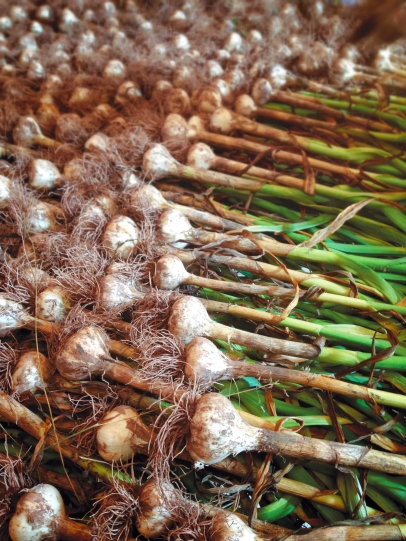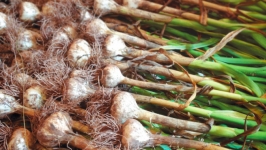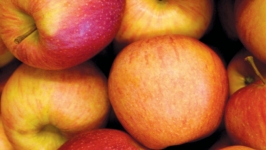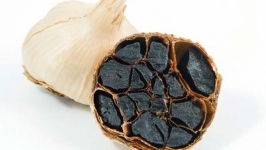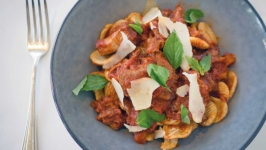Edible Health: Garlic Gusto
Stinking rose. Nectar of the gods. Camphor of the poor. Garlic goes by many names honoring its pungency. Whether roasted, steamed or sautéed, it adds a distinct flavor to any dish – and carries an amplitude of health benefits when eaten raw.
While garlic today is most often used as food, it has been used traditionally as medicine for thousands of years. Sulfur compounds present in garlic give it antibacterial properties, and therefore numerous applications. "Historically, it was used to treat gun wounds in World War II; made into a chest 'plaster' to ease congestion; and combined with honey as a cough syrup and expectorant," says David Winston, founder of David Winston's Center for Herbal Studies in Broadway. "It was so respected for its antibacterial and antiviral properties that during the Middle Ages, thieves would tie handkerchiefs doused in vinegar, garlic and herbs around their faces as they robbed the homes of those who had died of the bubonic plague because they thought it would prevent them from getting sick."
It is the process of chopping garlic and letting it sit for a few minutes that allows an enzyme called alliin to be converted into allicin, which gives garlic its antibacterial properties. These properties, however, are destroyed by heat. Winston's suggestion to those who love it cooked? Make two piles. "You can add some at the beginning to flavor your oil, but then add more at the very end so that it only gets slightly cooked and retains some of its health benefits."
Not only does garlic have antibacterial effects, it boasts anti-inflammatory and antioxidant properties as well.
"Eating raw garlic lowers triglyceride levels and cholesterol, and protects blood vessels from oxidative stress," says Beverley Manganelli, director of the Center for Nutrition and Diabetes Management at Hunterdon Healthcare in Flemington. "Oxidative damage leads to inflammation and garlic helps with anti-inflammatory processes. In addition, it is a good source of antioxidants like vitamin C and selenium, both of which help reduce levels of oxidizing free radicals in the body."
Does the thought of eating raw garlic leave you searching for a mint? Manganelli says eating parsley either with or after a garlicky meal can help lessen the effects of garlic breath (though, as the saying goes, if you're eating garlic with company, no one will notice!).
"Garlic makes everything better; I add it to every meal," says Amy Scott, comanager of Gravity Hill Farm in Titusville. "It's not that difficult to grow, and if stored properly can last throughout the winter." For those looking to begin their own backyard crop, Scott suggests a hardneck variety called Music: "It's very reliable, with consistently sized heads and cloves and a solid, delicious taste. It also stores longer than other varieties of garlic."
So whether you're dodging a cold or preparing a meal, feel good about garlic and its deeply rooted benefits to your health.


